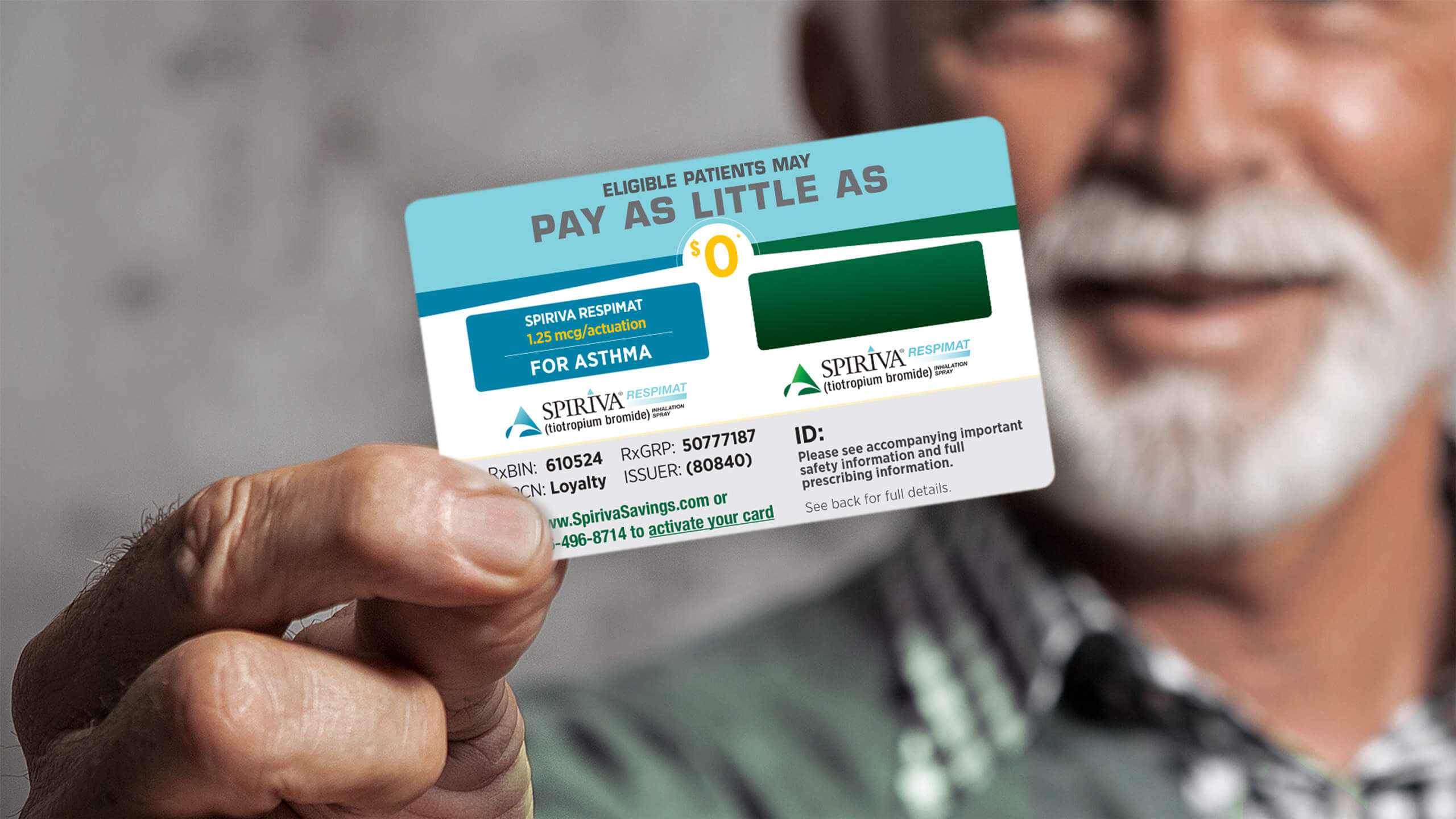Assessing your asthma symptoms
If you’ve had asthma for a while, you may have gotten used to having certain asthma symptoms—like coughing, wheezing, chest tightness, or shortness of breath. But these symptoms are a sign that you need more help managing your asthma.
Does this sound like you?

Short of breath

Tightness in your chest

Coughing

Use a rescue inhaler more than twice a week

Wheezing
Many people with asthma continue to experience symptoms even when taking daily maintenance treatment. Your risk for an asthma attack is greatest when asthma is not controlled. You may miss work, overuse your rescue inhaler, or end up in the hospital due to asthma.
If you’re using your rescue inhaler often or if your asthma symptoms are getting worse, it could be a sign that you need more help managing your asthma. To learn more about how SPIRIVA RESPIMAT can help you breathe better, download our patient brochure below.

What are your asthma symptoms telling you?

Eligible patients may pay as little as $0* for SPIRIVA RESPIMAT
SPIRIVA RESPIMAT is not a rescue medicine and should not be used for treating sudden breathing problems. Your doctor may give you other medicine to use for sudden breathing problems.
SPIRIVA RESPIMAT can cause allergic reactions. Symptoms can include raised red patches on your skin (hives), itching, rash and/or swelling of the lips, tongue, or throat that may cause difficulty in breathing or swallowing. If you have any of these symptoms, stop taking the medicine and seek emergency medical care.
SPIRIVA RESPIMAT can cause your breathing to suddenly get worse (bronchospasm). If this happens, use your rescue inhaler, stop taking SPIRIVA RESPIMAT, and call your doctor right away or seek emergency medical care.
SPIRIVA RESPIMAT can increase the pressure in your eyes (acute narrow-angle glaucoma), which can cause the following symptoms: eye pain, blurred vision, seeing halos or colored images along with red eyes. If you have any of these symptoms, stop taking your medicine and call your doctor right away.
Dizziness and blurred vision may occur with SPIRIVA RESPIMAT. If you experience these symptoms, use caution when engaging in activities such as driving a car, or operating appliances or machinery.
SPIRIVA RESPIMAT can cause new or worsened urinary retention. Symptoms of blockage in your bladder and/or enlarged prostate may include difficulty passing urine and/or painful urination. If you have any of these symptoms, stop taking your medicine and call your doctor right away.
The most common side effects with SPIRIVA RESPIMAT in adult patients with asthma were sore throat, headache, bronchitis, and sinus infection. The side effect profile for adolescent and pediatric patients was comparable to that observed in adult patients with asthma.
Do not spray SPIRIVA RESPIMAT into your eyes, as this may cause blurring of vision and pupil dilation.
Tell your doctor about all your medical conditions including kidney problems, glaucoma, enlarged prostate, problems passing urine, or blockage in your bladder.
Tell your doctor all the medicines you take, including eye drops. Ask your doctor if you are taking any anticholinergic medicines because taking them together with SPIRIVA RESPIMAT can increase side effects.
You are encouraged to report negative side effects of prescription drugs to the FDA. Visit www.FDA.gov/medwatch or call 1-800-FDA-1088.
CL-SVRA-0048 2.15.2017
Please see full Prescribing Information, including Instructions for Use, for SPIRIVA RESPIMAT.
